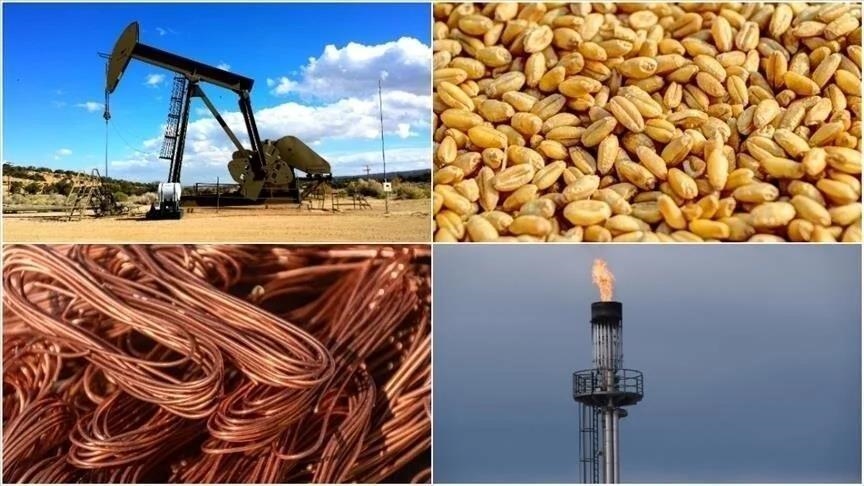Commodity markets see continued downward trend
US macroeconomic data lead to concerns over manufacturing industry, causing base metal to fall

ISTANBUL
Commodity markets saw a continued downward trend last week due to uncertainties over the Fed’s timing on rate cuts, as well as concerns over the US manufacturing industry.
Non-farm payrolls in the US came in stronger than expected, having increased by 272,000 people in May, influencing prices.
Precious, base metals see downward trend, Brent crude oil falls, natural gas rises
US macroeconomic data triggering concerns over the manufacturing industry gave way for base metals to fall sharply last week, as the Institute for Supply Management’s (ISM) manufacturing Purchasing Managers’ Index (PMI) fell to 48.7 in May, below expectations, signaling that the contraction in the field continues.
Meanwhile, copper stocks on the Shanghai Futures Exchange rose to the highest level since 2020, resulting in a sharp decline in copper prices.
Given this, the pound price of copper fell 3.8%, nickel 8.5%, lead 3.2%, and zinc 6.8% last week.
As for the precious metals, the ounce price of gold declined 1.4%, palladium 0.1%, silver 4.1%, and platinum 6.9%.
Crude oil stocks in the US increased and the plans for increasing the crude oil supply by the OPEC+ group and some non-OPEC producer countries caused the prices to go down once again.
The natural gas prices, however, rose as the daily production declined in the US, while households and businesses opted for natural gas-powered air conditioners to survive the expected heatwave.
Considering this, the barrel price of Brent crude oil fell 2.4%, while the price of natural gas traded on the New York Mercantile Exchange soared 13.5% last week.
Agricultural group sees mixed course
Coffee prices rose on drought concerns in Vietnam, while sugar prices surged due to estimates of a production deficit of 689,000 tons for the 2023/24 season, as per the International Sugar Organization (ISO).
Restrictions on cocoa sales in the Ivory Coast led to supply concerns.
In view of this, the pound price of cotton traded on the Intercontinental Exchange fell 2%, while sugar rose 3.6%, and coffee 1.1%, whereas the ton price of cocoa surged 6.5%.
Additionally, the bushel price of wheat traded on the Chicago Mercantile Exchange declined 7.6%, soybeans 2.3%, rice 2.8%, and corn 0.4% last week.
*Writing by Emir Yildirim
Anadolu Agency website contains only a portion of the news stories offered to subscribers in the AA News Broadcasting System (HAS), and in summarized form. Please contact us for subscription options.

